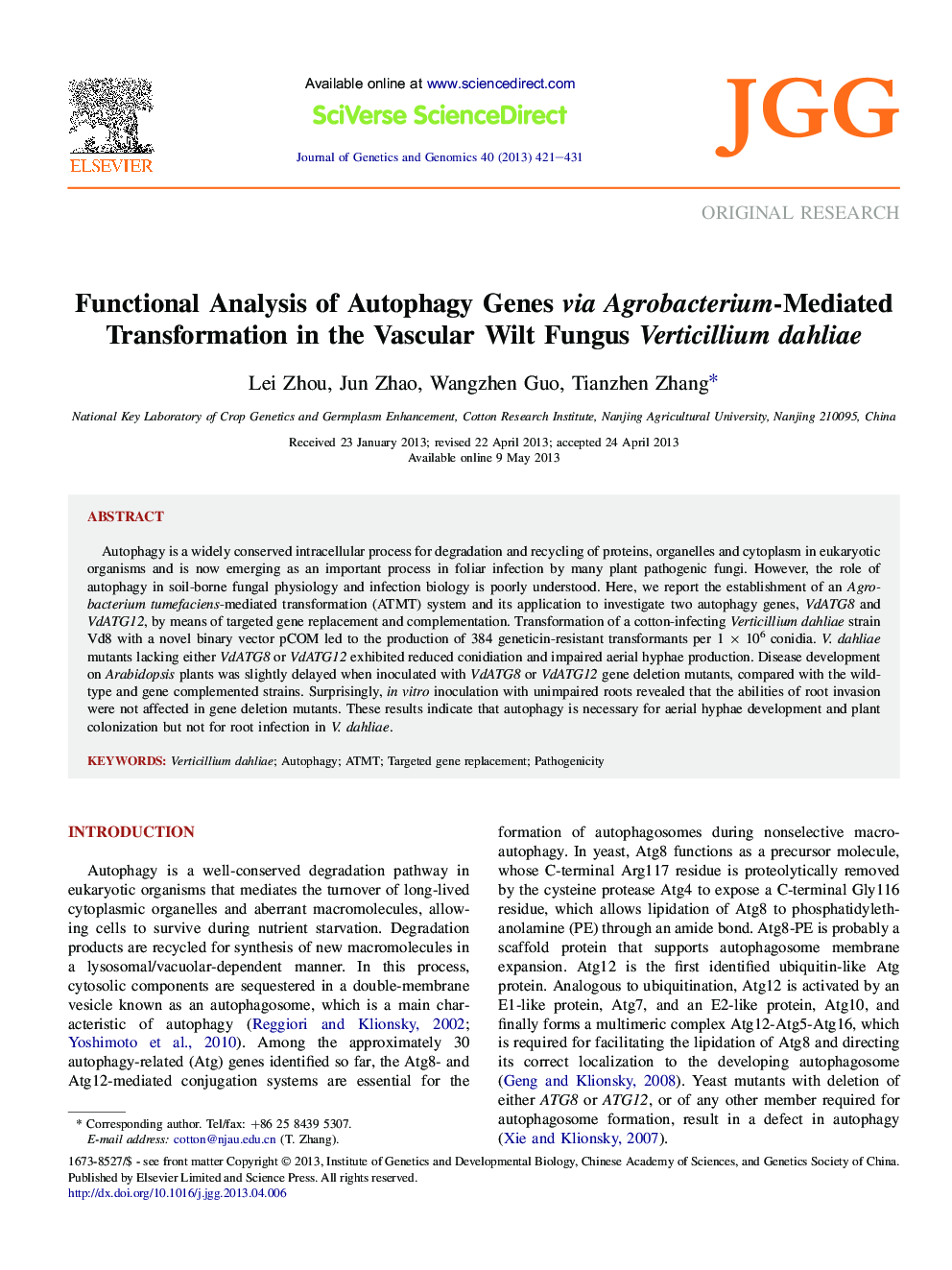| Article ID | Journal | Published Year | Pages | File Type |
|---|---|---|---|---|
| 2787528 | Journal of Genetics and Genomics | 2013 | 11 Pages |
Autophagy is a widely conserved intracellular process for degradation and recycling of proteins, organelles and cytoplasm in eukaryotic organisms and is now emerging as an important process in foliar infection by many plant pathogenic fungi. However, the role of autophagy in soil-borne fungal physiology and infection biology is poorly understood. Here, we report the establishment of an Agrobacterium tumefaciens-mediated transformation (ATMT) system and its application to investigate two autophagy genes, VdATG8 and VdATG12, by means of targeted gene replacement and complementation. Transformation of a cotton-infecting Verticillium dahliae strain Vd8 with a novel binary vector pCOM led to the production of 384 geneticin-resistant transformants per 1 × 106 conidia. V. dahliae mutants lacking either VdATG8 or VdATG12 exhibited reduced conidiation and impaired aerial hyphae production. Disease development on Arabidopsis plants was slightly delayed when inoculated with VdATG8 or VdATG12 gene deletion mutants, compared with the wild-type and gene complemented strains. Surprisingly, in vitro inoculation with unimpaired roots revealed that the abilities of root invasion were not affected in gene deletion mutants. These results indicate that autophagy is necessary for aerial hyphae development and plant colonization but not for root infection in V. dahliae.
